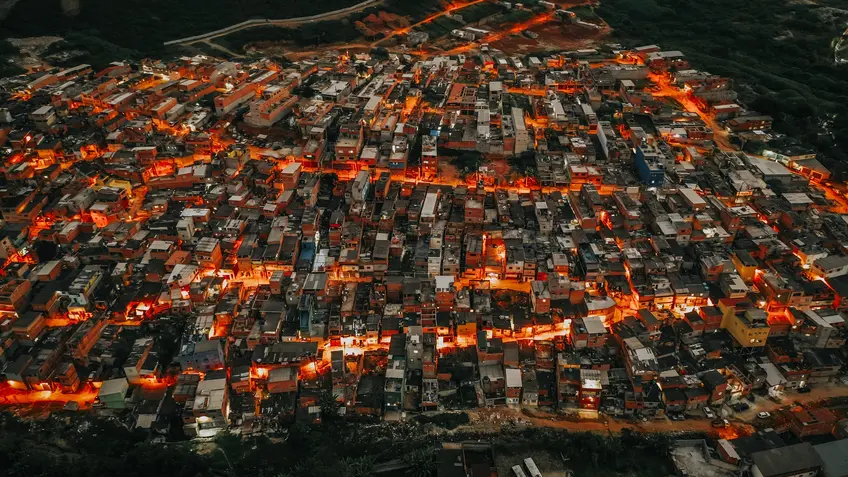São Tomé and Príncipe Makes Headway on Climate Leadership, Inclusion, and Energy Transition
"The NDC Partnership is supporting the Government of Sao Tome and Principe in promoting an inclusive and whole-of-society approach to NDC revision, planning and implementation. The country has advanced steadily on several fronts, is implementing mitigation and adaptation actions in multiple sectors and mainstreaming climate action into public planning and financial systems."
- Geisel de Menezes, Ministry of Planning, Finance, and Blue Economy and NDC Partnership focal point.
São Tomé and Príncipe joined the NDC Partnership in 2016 and works with 13 partners to transform the country into a climate-resilient and vibrant hub with broad stakeholder buy-in.
CLIMATE LEADERSHIP AND INCLUSION
The Government of São Tomé and Príncipe adopted a whole-of-society approach to address the needs and priorities of multiple government ministries, priority sectors, and private and public stakeholders in NDC planning and implementation. Chaired by the Presidential Office, the National Climate Change Committee provided leadership to these collaborative processes. The Committee draws members from government and civil society and is responsible for convening key stakeholders and facilitating the design, financing, implementation, and follow-up of all programs and projects developed in the Paris Agreement framework. The Committee also ensures coherence between all government programs and projects and national climate change priorities in adaptation and mitigation.
PROMOTING GENDER EQUALITY
São Tome and Príncipe officially launched a pilot initiative for gender-responsive budgeting in the Ministry of Infrastructure, Natural Resources and Environment. Aligned with the NDC and with IMF, EU, and UN support, this initiative will help achieve SDG targets and promote gender equality, women’s economic empowerment, and overall inclusive growth.
Moreover, the Gender Equity Institute developed awareness-raising campaigns around issues including gender equality, women in food safety, climate change, and environmental protection aligned with NDCs. With the African Development Bank’s financial support, several campaigns were carried out in local communities.
Moving forward, the Government is defining ministries’ roles and responsibilities in terms of gender mainstreaming and is integrating gender into the national Public Investment Management system.
INVOLVING COASTAL COMMUNITY TO IMPROVE RESILIENCE
Through participation in the World Bank’s West Africa Coastal Areas Management Program (WACA), São Tomé and Príncipe boosts coastal communities’ involvement in efforts to tackle coastal erosion, flooding, pollution, and climate change adaptation. Ongoing activities focus on capacity-building for increased community resilience as well as investments in nature-based solutions and infrastructure coastal protection. At the policy level, São Tomé and Príncipe mainstreams disaster risk management into policies and planning instruments, including a new geo-based platform to inform policy makers and planners on vulnerable areas and aid planning processes.
SCALING-UP ENERGY TRANSITION
A core group of partners, including the AfDB, European Investment Bank, UNIDO, UNDP, and the World Bank are working with the Ministry of Public Works, Infrastructure, Natural Resources and Environment to bolster the transition to renewable energy and energy efficiency solutions. Specific actions include expanding hydroelectric power capacity, improving the regulatory environment for renewable energies and investments, and prioritizing a pipeline of hydro and solar energy projects. By working with the Partnership, development banks and development organizations help São Tomé and Príncipe realize its 2030 vision to increase the share of renewables in its national energy mix and increase energy access and security.
LANDSCAPE RESTORATION
The “Landscape Restoration Project for Ecosystem Functionality and Climate Change Mitigation in the Republic of São Tomé e Príncipe,” funded by FAO/GEF, aims to improve landscape restoration for ecosystem functionality and climate change mitigation. Within the project’s framework, 7,150 hectares of shady forests supporting high quality agroforestry plantations are being restored and sustainably managed in the protected areas of Obô and Príncipe Natural Parks; 600 hectares of mangrove areas will be restored and managed for conservation and recreation purposes; 23,000 hectares of natural forests will be restored and managed sustainably in degraded areas; and 4,500 hectares of the Contador River basin will be restored in partnership with the World Bank-supported PRSP (Energy Sector Recovery Project).
Members supporting São Tomé and Príncipe: AfDB; EIB; EU; FAO; GEF; GCF; IMF; IRENA; the Netherlands; UN-Habitat; UNDP; UNIDO; UNCDF; and the World Bank.
This is a PiA 2020 story: Browse the multimedia version or PDF version.
